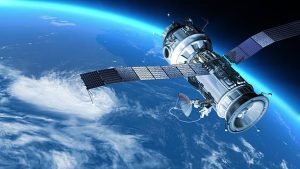 While space exploration has historically been dominated by major global players, African nations, including Kenya, are increasingly asserting their presence in the realm of outer space. Kenya’s participation in African space programs underscores its commitment to scientific advancement and technological innovation.
While space exploration has historically been dominated by major global players, African nations, including Kenya, are increasingly asserting their presence in the realm of outer space. Kenya’s participation in African space programs underscores its commitment to scientific advancement and technological innovation.
Kenya’s Contributions to Space Exploration
1. Establishment of the Kenyan Space Agency:
- Founding Objectives: The establishment of the Kenyan Space Agency (KSA) marked a significant milestone in Kenya’s pursuit of space exploration. Explore the founding objectives of the KSA and its mandate to coordinate space-related activities in the country.
- Research and Development Initiatives: The KSA spearheads research and development initiatives aimed at leveraging space technology for socio-economic development. Investigate the focus areas of KSA’s research projects and their potential impact on various sectors, including agriculture, telecommunications, and environmental monitoring.
2. Satellite Development and Remote Sensing Applications:

- Development of CubeSats: Kenya has ventured into satellite development, particularly CubeSats, which are miniature satellites used for various applications. Learn about Kenya’s efforts in CubeSat development and its implications for enhancing telecommunications, disaster management, and environmental monitoring capabilities.
- Remote Sensing Applications: Remote sensing technologies play a crucial role in monitoring land use, natural resources, and environmental changes. Explore how Kenya utilizes satellite imagery and remote sensing data to address challenges such as deforestation, drought mitigation, and urban planning.
3. International Collaborations and Partnerships:
- Collaborations with Space Agencies: Kenya collaborates with international space agencies and organizations to leverage expertise, resources, and knowledge exchange opportunities. Analyze Kenya’s partnerships with agencies such as NASA, the European Space Agency (ESA), and the African Union (AU) in advancing space research and exploration.
- Capacity Building Initiatives: International collaborations facilitate capacity building initiatives aimed at training Kenyan scientists, engineers, and researchers in space-related disciplines. Examine the impact of capacity building programs on Kenya’s scientific workforce and technological capabilities.
4. Inspiring the Next Generation of Space Scientists:

- STEM Education Initiatives: Kenya emphasizes science, technology, engineering, and mathematics (STEM) education to nurture the next generation of space scientists and engineers. Explore initiatives aimed at promoting STEM education in schools, universities, and research institutions across the country.
- Youth Engagement Programs: Encouraging youth participation in space-related activities and competitions inspires interest and passion for space exploration. Learn about youth engagement programs, hackathons, and space-themed events aimed at fostering innovation and creativity among Kenyan youth.
In conclusion, Kenya’s involvement in space exploration reflects its commitment to scientific excellence, technological innovation, and socio-economic development. As Kenya continues to harness the transformative power of space technology, it paves the way for a new era of scientific discovery, innovation, and progress on the African continent.






